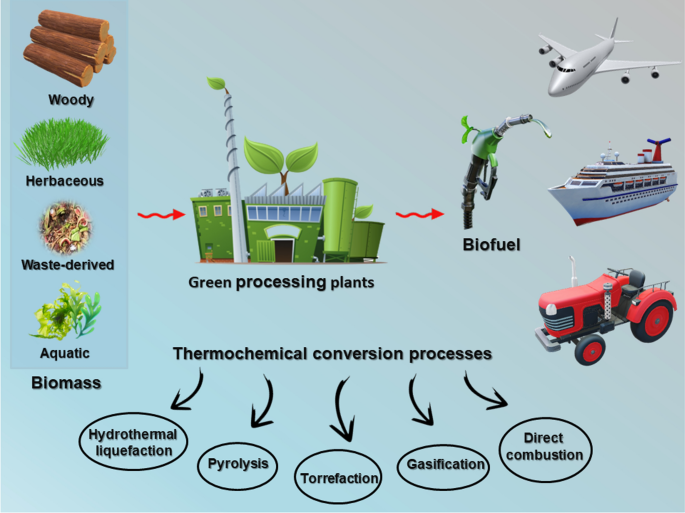
Revolutionizing Energy: Unveiling Biomass Energy Conversion Innovations
Biomass, a renewable energy source derived from organic materials, has become a focal point in the quest for sustainable energy solutions. This article delves into the innovative realm of Biomass Energy Conversion, exploring its methods, applications, and the transformative impact it holds on the renewable energy landscape.
Harnessing Nature’s Potential: Biomass as a Renewable Resource
At the core of Biomass Energy Conversion is the utilization of organic materials, such as agricultural residues, wood, and organic waste, to produce energy. Unlike fossil fuels, biomass is a renewable resource, making it a sustainable alternative that taps into the natural cycle of organic matter. This approach reduces reliance on finite resources and minimizes environmental impact.
Technological Marvels: Biomass to Bioenergy Conversion
The conversion of biomass into bioenergy involves advanced technological processes. Thermochemical conversion methods, such as pyrolysis, gasification, and combustion, transform biomass into biofuels and biogas. Biochemical conversion, including anaerobic digestion and fermentation, produces biofuels like ethanol. These processes showcase the versatility of biomass in generating various forms of clean and renewable energy.
Powering the Grid: Biomass Electricity Generation
One of the significant applications of Biomass Energy Conversion is in electricity generation. Biomass power plants employ combustion or gasification technologies to produce electricity. The generated power can be integrated into the grid, contributing to a diversified energy mix. This decentralization of energy sources enhances energy security and promotes sustainable power generation.
Biofuels for Transportation: Driving Towards Sustainability
Biomass Energy Conversion plays a pivotal role in the production of biofuels, providing sustainable alternatives for the transportation sector. Bioethanol, biodiesel, and biogas are derived from biomass feedstocks and serve as cleaner substitutes for conventional fossil fuels. The integration of biofuels reduces greenhouse gas emissions and contributes to mitigating climate change.
Waste to Wealth: Biomass Conversion from Organic Residues
An innovative aspect of Biomass Energy Conversion lies in turning organic residues into valuable resources. Agricultural residues, food waste, and forestry by-products can be converted into biochar through pyrolysis. Biochar enhances soil fertility and carbon sequestration, presenting a circular economy approach where waste becomes a valuable input for sustainable agriculture.
Green Technology Revolution: Biomass in Industrial Processes
Industries are increasingly adopting Biomass Energy Conversion in their processes. Biomass-derived heat and power can replace fossil fuels in industrial operations, contributing to a greener and more sustainable manufacturing sector. This integration aligns with the global movement towards green technology solutions in various industries.
Challenges and Solutions: Navigating the Biomass Landscape
While Biomass Energy Conversion holds immense potential, it is not without challenges. Concerns about land use, competition with food crops, and emissions from certain conversion processes need careful consideration. Sustainable biomass practices, such as utilizing waste streams and promoting responsible land use, are crucial solutions to ensure the positive impact of biomass energy.
Government Support and Policies: Driving Biomass Adoption
Governments worldwide play a crucial role in driving the adoption of Biomass Energy Conversion. Supportive policies, incentives, and regulations create an environment conducive to the growth of biomass projects. Financial incentives, tax credits, and mandates for renewable energy usage incentivize businesses and communities to invest in biomass technologies.
Economic Viability: Biomass as a Catalyst for Rural Development
Biomass projects have the potential to stimulate rural economies. The cultivation and processing of biomass feedstocks create jobs and economic opportunities in rural areas. Biomass energy projects contribute to decentralizing energy production, fostering local resilience, and reducing dependence on centralized energy sources.
The Path Forward: Embracing Biomass Energy Conversion
In conclusion, Biomass Energy Conversion stands at the forefront of renewable energy innovations. Its multifaceted applications, from electricity generation to biofuels and industrial processes, showcase the versatility of biomass in contributing to a sustainable energy future. To delve deeper into the world of Biomass Energy Conversion and its practical applications, visit Biomass Energy Conversion for valuable insights and resources.


